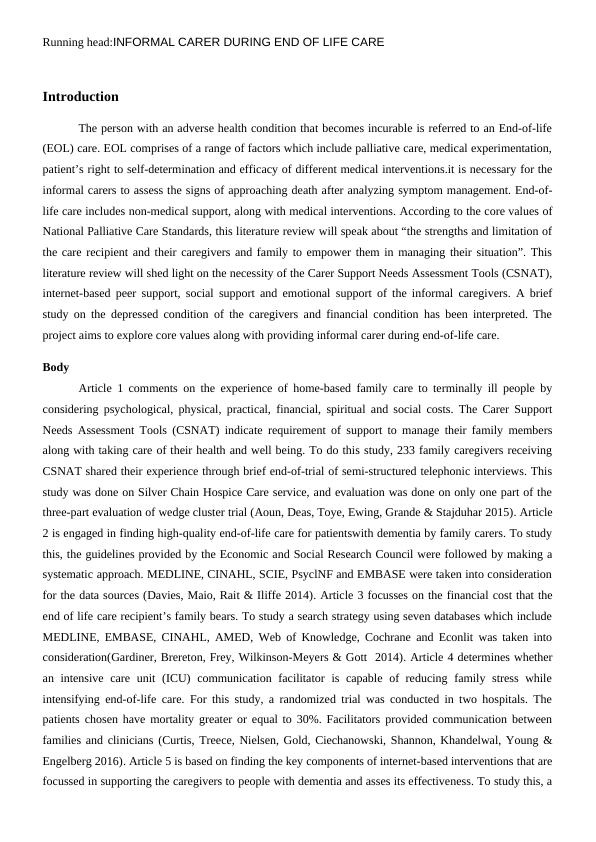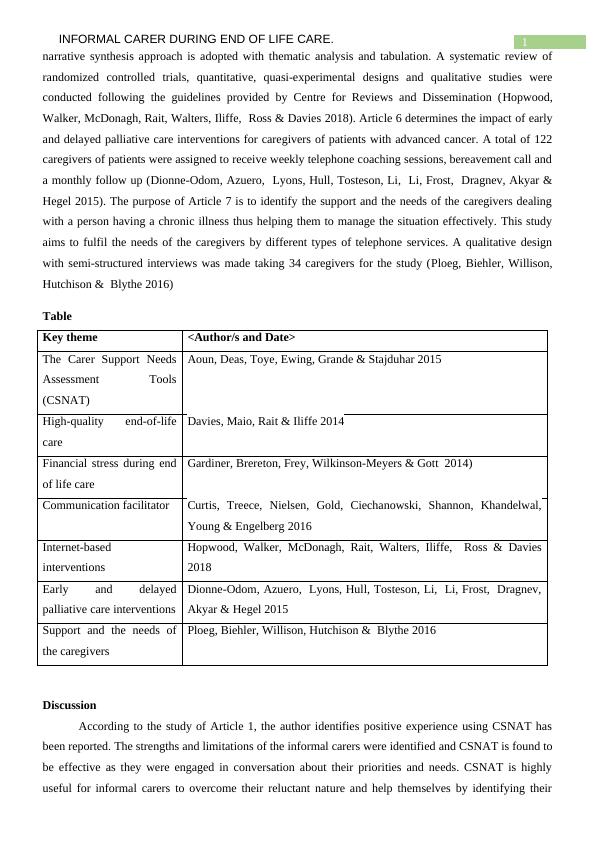Assignment on Informal Carer During End of Life Care
Review and critique the current literature relevant to end of life care and report on the findings, focusing on the importance of one chosen core value for the informal carer during end of life care.
4 Pages1833 Words23 Views
Added on 2022-08-12
Assignment on Informal Carer During End of Life Care
Review and critique the current literature relevant to end of life care and report on the findings, focusing on the importance of one chosen core value for the informal carer during end of life care.
Added on 2022-08-12
ShareRelated Documents
End of preview
Want to access all the pages? Upload your documents or become a member.
Mental Health Nursing - PDF
|29
|7775
|171
Understanding of illness Assignment PDF
|10
|2886
|298
Perception of End-of-Life Dementia Care by Family Members: A Summary Table
|3
|748
|100
Clinical Interventions in Aging
|14
|11866
|30
Evidence Based Nursing Research
|5
|1088
|36
Reducing Hospital Readmission among Heart Failure Patients
|11
|2586
|306


